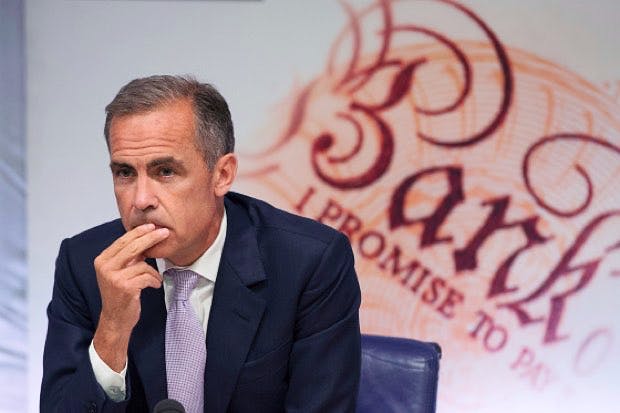Inflation is rising. Real wages are stagnant, and GDP is being revised downwards, putting us down there with the likes of Italy. If Theresa May had a script for the final fortnight of the election campaign it probably didn’t include figures like those. Today’s revision of the quarterly GDP number, down to a sluggish-looking 0.2 percent, from the initial 0.3 percent, will no doubt be seized upon by critics of the government, and by the increasingly battle-weary battalions of hardcore Remainers, as evidence that the wheels are finally coming off the economy, and the impact of a ‘hard Tory Brexit’ is finally being felt. In fact, however, it tells us something quite different. The UK is certainly slowing down in the first half of this year. But that is because the Bank of England over-stimulated in the immediate aftermath of the referendum.
At the best of times, GDP data is not a 100 percent accurate. It is never more than a blurry snapshot of what is happening to output. As it turned out, the last reading was too upbeat, and 0.1 percent has now been shaved off the final figure. That may sound like the kind of thing only economists could get excited about – and even the pointiest-headed number-cruncher is probably not that worked up over it – but add that up over a year, and it makes a difference. Last year, Britain was one of the fastest growing G-7 economies. Now it is one of the slowest.
Drill down into the data, and one thing becomes clear. Industrial manufacturing and construction were both fine. Exports were down a bit. But the real culprit was this: the consumer, usually the indefatigable mainstay of the UK economy, ran out of steam. Services were weaker than expected and so were retail sales, and that has taken the edge off growth.
Then again, what would you expect? Last summer, when the economy was still motoring along at a decent speed, the Bank suddenly halved interest rates from 0.5 percent to just 0.25 percent. It re-launched quantitative easing, chucking another £70 billion at the economy. The result? Consumers, as you might expect, ran down their savings, loaded up yet more debt on their credit cards and mortgages, and went on a shopping spree. Now that has been exhausted.
Mark Carney’s main trick has been to bring ‘stop-go’ back into the British economic cycle. We have had the ‘go’, and now we are getting a bit more of the ‘stop’. In fact, it would have been far better for the Bank to keep something in the locker for when the economy really needed it. There is no real reason to think the global economy is going to slow down dramatically. A couple of trillion euros of fresh printed cash from the ECB has made continental Europe a little stronger, and while the Trump tax cuts show no sign of being passed, the US is in respectable shape. Even so, if there is a worldwide slow-down, you’d have hoped the Bank would have kept some ammunition in reserve – rather than using it all up fighting a Brexit collapse that never materialised.






Comments